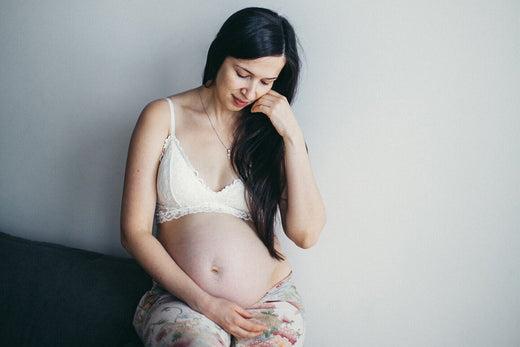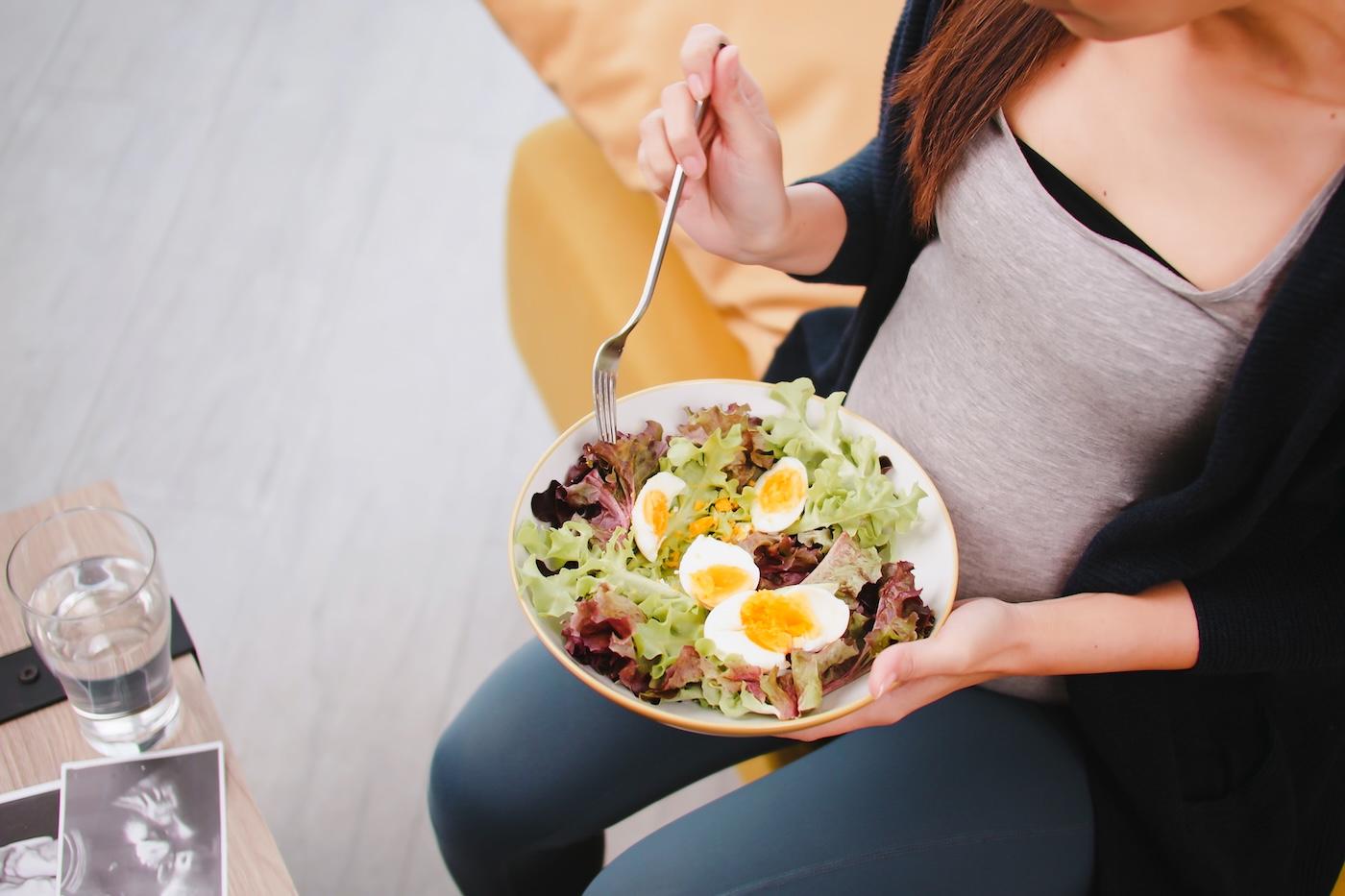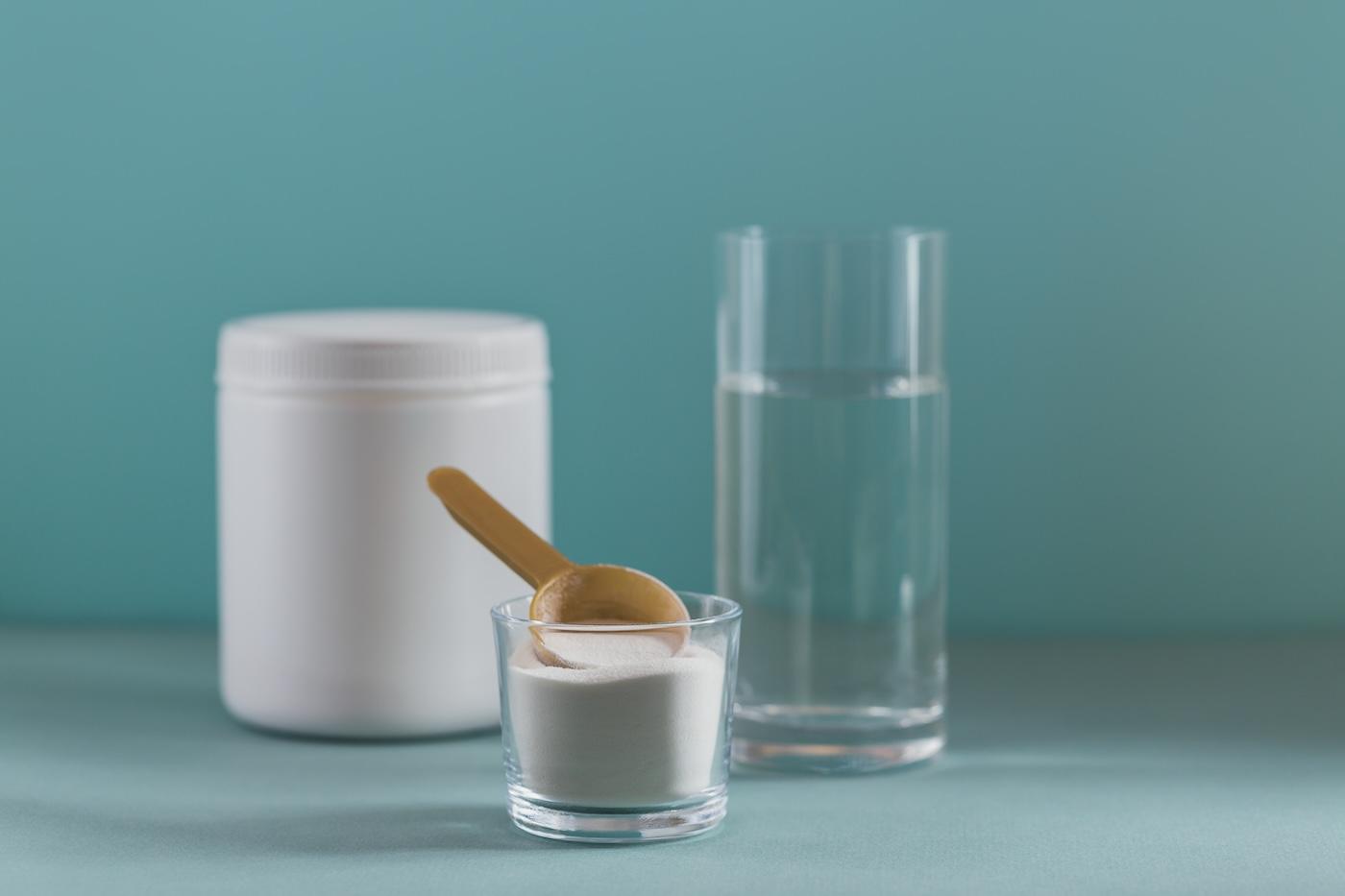PREGNANCY
Depression During Pregnancy: What Every Mom-to-Be Needs to Know
We’ve made great strides to demystify and destigmatize postpartum depression, yet it’s only now dawning on us how really tough pregnancy can be on a mom’s emotional balance.

Written by
Dr. Harvey Karp

We all know that morning sickness, swollen ankles, heartburn, and sundry aches and pains are par for the course with pregnancy. And in recent years, we’ve made great strides in acknowledging, demystifying, and destigmatizing how really tough pregnancy can be on a mom-to-be's emotional balance, too.
Studies have found that up to 25% of pregnant, postpartum, and parenting women experience some form of depression: a sustained feeling of moodiness or blah—from loss of joy to high anxiety and frank sadness. Here's what you need to know about pregnancy and your mental health.
What are the signs of depression during pregnancy?
The challenge of diagnosing pregnancy depression is that many of the symptoms—such as poor sleep, reduced appetite, and low energy levels—are normal during any pregnancy. So, what’s the tipoff that you’re veering into a depression during pregnancy?
Here are the most common symptoms of depression during pregnancy:
- Irritability and mood swings
- Easily becoming tearful
- Feeling inadequate or disconnected
- Loss of interest in normal activities
- Lack of appetite or other changes in eating
- Difficulty concentrating and memory problems
- Neglecting prenatal care
- Persistent sadness and negative thoughts
- Rising worry or anxiety…that resists reassurance
- Feeling the need for alcohol, drugs, or tobacco
- Suicidal thoughts
When should you seek help for depression during pregnancy?
The American College of Obstetricians and Gynecologists (ACOG) recommends that healthcare providers screen for depression and anxiety at least once during pregnancy. The standard screening test includes questions about your mood and anxiety level. (Here is one commonly used depression screening tool.) But if you suspect you may be dealing with pregnancy depression, don't wait to be screened! Put aside any hesitations or guilt and reach out to your nurse, midwife, or doctor, share how you're feeling, and collaborate on next steps. Remember, there is no shame in having a conversation. And getting diagnosed is the first step to feeling better again.
Depression During Pregnancy Treatment
There are many treatments and natural remedies that can help with mild to moderate depression during pregnancy. These include:
- Talking to a therapist. Whether in-person or over video chat, speaking to a therapist with experience in treating prenatal and postnatal depression can be a great help. (Here are some virtual mental health resources to explore.)
- Joining an online support group. Find a postpartum depression support group—they often support women with pregnancy depression as well.
- Trying light therapy. Also called phototherapy, this treatment involves getting lots of morning sunlight or sitting next to a “light box” that mimics sunlight. Used to treat seasonal affective disorder, light therapy has also shown to help pregnancy mood problems.
- Getting exercise. This been shown to improve mood, so long as you don’t overdo it. In fact, research shows that engaging in physical activity at least once a week may significantly reduce symptoms of depression in pregnant women.
- Receiving acupuncture. Depression-specific acupuncture has been shown to be a safe means for treating depression during pregnancy—and can be very relaxing.
- Supplementing with Omega-3. This has been shown to possibly reduce depression symptoms. (Ask your provider for dosage and details.)
Depression Medication During Pregnancy
Women with more severe depression during pregnancy may need antidepressant medicine. While it's never an easy decision to take medication when you're pregnant, sometimes it's the right thing to do because being depressed can impact both your—and your baby’s—health.
You and your doctor must weigh the risk of untreated depression while pregnant (potentially even thoughts of self-harm) versus the concerns of medicine affecting the baby. Remember, for many, pregnancy depression can be managed without a prescription...but, for others, drugs are necessary. And there's no shame in that! And know that, by and large, the risk of taking antidepressants during pregnancy is very low.
What causes depression during pregnancy and who is most vulnerable?
The hormonal changes that occur during pregnancy can affect your brain chemistry, impacting mood. But there are additional risk factors that can slide you toward depression, such as:
- Sleep deprivation (Learn how to get better sleep during pregnancy.)
- A prior history of depression or anxiety
- Big life stresses and a lack of social support
- Prior or ongoing abuse
- Excessive discomfort
Pregnancy depression can be tough to talk about, but getting help can make all difference in the world…for your own health, as well as for your baby.
More on maternal mental health:
- How SNOO Supports Parents' Wellbeing
- Top Triggers for Postpartum Depression
- Infertility and Your Mental Well-Being
- Is it Postpartum Anxiety or Postpartum Depression?
- Why Good Moms Have Scary Thoughts
Disclaimer: The information on our site is NOT medical advice for any specific person or condition. It is only meant as general information. If you have any medical questions and concerns about your child or yourself, please contact your health provider.
SHARE THIS ARTICLE
MOST LOVED
Sleepytime Sidekicks












